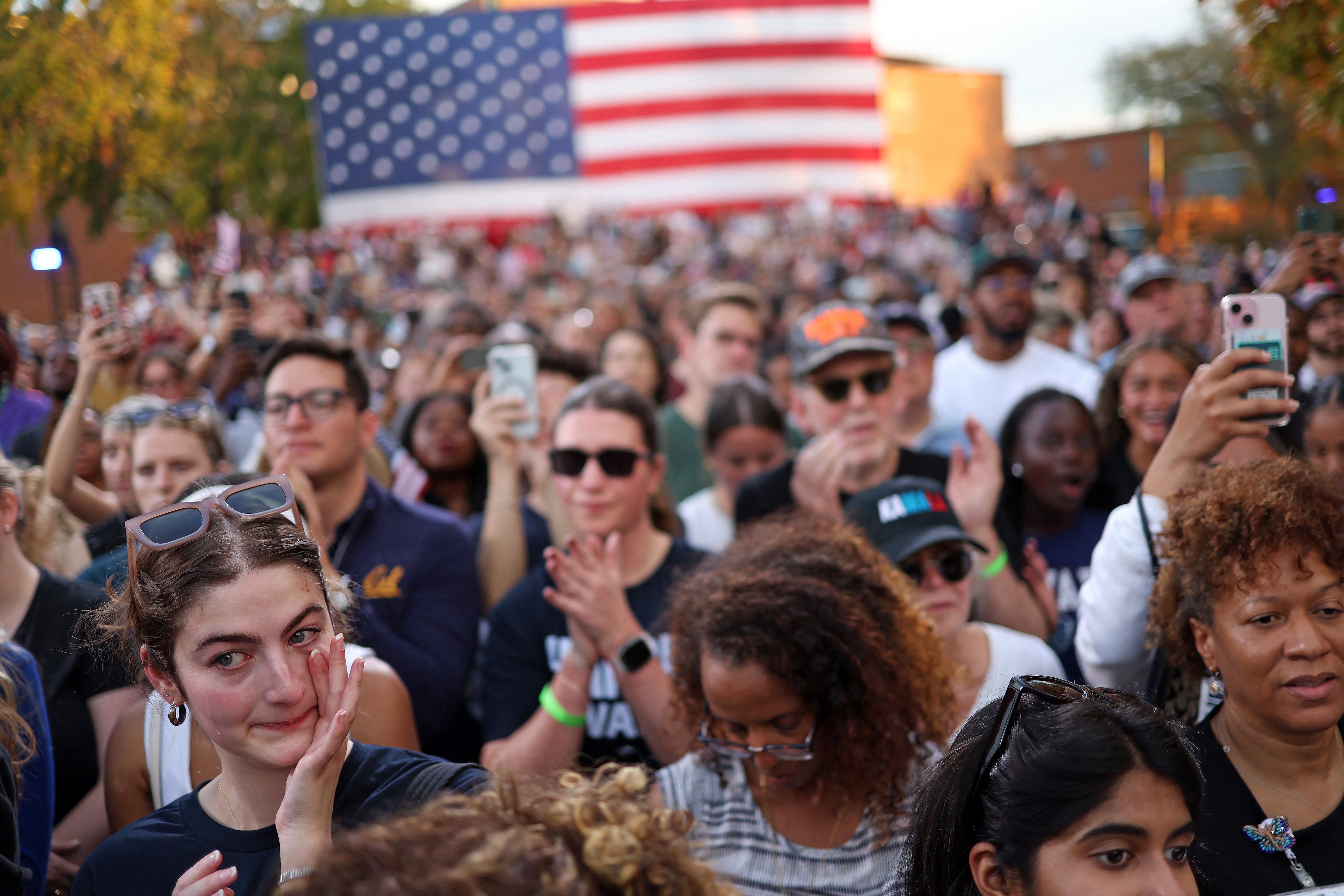George Washington University is moving forward with a plan to arm some of its campus police officers, with two officers carrying guns once the fall semester begins on Thursday, the university says.
Supervisory officers with the GW Police Department will be armed in phases, starting with two executive supervisory officers: Chief James Tate and Captain Gabe Mullinax, the university said in a release on Monday.
In April, dozens of students protested after interim President Mark Wrighton announced the school would equip some officers with guns.
“Some community members have voiced their concerns, and our work now is to continue to ensure our implementation is guided by community feedback. Ultimately, safety is our foremost priority, and this is deeply personal for each of us based on our identities and experiences," GW's current president, Ellen M. Granberg, said in the Monday release.
The university said its original plan has changed since getting feedback from student groups, faculty, staff and others. Comments submitted via an online portal were also taken into consideration when school officials revised the plan.
GW maintains that arming the officers is important amid a rise in gun violence.
"This is particularly crucial in the university’s densely populated setting and during incidents when response time is critical," the university said Monday.
Here's the five-part implementation plan the university outlined:
- Arming scope and strategy: Only GWPD will be armed, beginning at the start of the 2023 academic year with Tate and Mullinax. More supervisors will be armed in phases as they meet the requirements and the school incorporates community input.
- Use of force policy review and revisions: After getting feedback from the community, GWPD revised its use of force policy to better define the circumstances in which officers are allowed to use force, prohibit chokeholds or any restriction to someone's airway and clarify the use of force when protecting officers’ lives or the lives of others, as well as other updates. Read the department's complete use of force policy here.
- Training requirements: All armed supervisor officers must complete implicit bias training every semester; de-escalation training once per month, mental health response training three times per year, firearms qualification three times per year and virtual reality simulator training once per month, the police department said. Supervisors will also undergo new background investigations and psychological evaluations before they are allowed to carry guns, and any armed supervisors new to GW will undergo a "pre-arming period" to ensure they understand the campus and community.
- Independent review committee: A committee of faculty, staff and student representatives will review all instances of use of force with a gun. GW is working on the nomination and application process for establishing the committee, and the university said it will continue to consider community feedback as that process takes shape. The school said it will put together an interim committee in the meantime before any officers are armed.
- Continued community engagement: Campus police plan to increase safety awareness and visibility this fall through student events, engaging faculty and staff leaders, collaborating with residential and student life and attending neighborhood meetings.
The school will also develop a safety advisory committee of students, faculty and staff who will meet with campus police to collaborate on safety concerns, GW said.
Local
Washington, D.C., Maryland and Virginia local news, events and information
Arming officers is part of a greater safety plan for GW campuses that includes making improvements to mental health concerns response, building security reviews, active shooter response training and reviewing and testing emergency notification systems, the school says.



